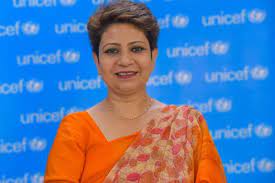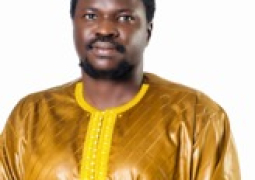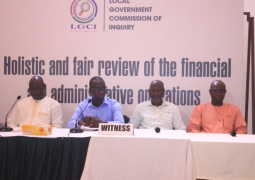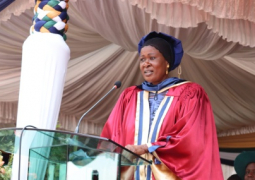
Ms Fatoumatta Keita reiterated this open call for action during Government of The Gambia and UNICEF presentation of its Country Programme Document 2024-2028 to the UNICEF Executive Board (the governing body of UNICEF with oversight over organisation) for consideration, where she addressed the UNICEF Executive Board on disability inclusion.
The CPD 2024-2028 is derived from the United Nations Sustainable Development Cooperation Framework (UNSDCF) 2024-2028, the UN contribution to the National Development Plan 2023-2027.
As a panelist before the world functionaries during the momentous occasion, the young advocate portrayed the grim circumstances children with disabilities, especially those in the Africa region, often find themselves helplessly entangled in, while depicting her own trying experience as a typical benchmark.
“Growing up,” she lamented with a distant look, “the idea that I could make it this far in life was not only unlikely, it was impossible. I was born deaf, lost my father when I was three years old and my mother when I was 10. For most children like me, that is the end of their story. They are often cast aside in the shadows of statistics and terminologies. I am lucky. Unfortunately, I am among the very few who can say that in this part of the world.”
She added: “Today, I want you to see, through me, the incredible potential of children with disabilities; like all children, to inspire hope and change when they are treated with dignity and allowed to dream and pursue their dreams. I want you to imagine the possibilities of a world where every child is seen, heard and included – not as indicators of diversity and inclusion but as humans with rights, dreams and potential.”
The young disability advocate raised the persistent hurdles and almost-everlasting impediments that confront African children with disabilities, such as the lack of basic services and needs, adding that “society is restrictive to children like” her.
“We refuse to be held back,” she declared. “With determination, I have found my voice and, today, I am not only an advocate for girls with disabilities but for all vulnerable and excluded children, including girls who face violence and abuse.”
Her dream is to become a nurse, but she expressed her ever-present awareness of what challenges are ahead
In a tense moment before the top functionaries of the global body tasked with children affairs, she addressed: “Now, if you are wondering what you can do for us, it is simple. Just deliver on the promises you made in the international conventions and treaties.”
Elucidating on her plea, she asked for children with disabilities to be seen, counted and included in decision-making processes, in policies and programs; greater investment in the welfare and development of children with disabilities; mobilise all partners, including communities, civil society and the private sector, create equal opportunities, learning opportunity, and urgent action to protect children with disabilities from sexual violence and abuse.
“We are hardly listened to, even when we break all the beautiful records. Often, we live in a cycle of violence in silence,” she said, adding: “Finally, please don’t leave us behind as you innovate and adopt new technologies such as AI. Work with us to use the power of technology to solve some of our problems and ensure that we are included. We are not outsiders. We are a part of humanity worthy of rights and dignity.”
In the same vein, the UNICEF representative to The Gambia, Nafisa Binte Shafique, hailed the UNICEF Executive Board’s approval of the CPD 2024-2028, saying: “Today, we celebrate the Executive Board’s endorsement of our new CPD.
She added: “In partnership with the Government of The Gambia, the CPD outlines UNICEF’s commitment to delivering for every child in The Gambia over the next 5 years. I wish to extend my sincere gratitude to Fatoumatta Keita for her powerful address to the Executive Board.
“Over the next 5 years, UNICEF Gambia will increase our work with inspirational young girls like Fatoumatta, as well as adolescents across the country, to ensure their meaningful participation in programmes and policies that affect their lives. Together, we will continue to uphold, promote and protect the rights of all children and adolescents in The Gambia to achieve their full potential.”





